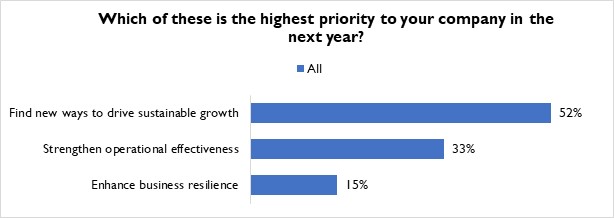Why Achieving Agility, Resiliency, And Sustainability Is Important Now
Editor’s note: The following is an excerpt from RSR’s forthcoming benchmark, Agility, Resiliency, And Sustainability As A Business Strategy In Retail, sponsored by ESRI. It is not yet published.
The retail business model as we have known it for almost 100 years was developed with an underlying assumption that change is predictable, and that achieving operational efficiency is the key to success. With that baseline assumption and objective in mind, businesses have, with very few exceptions, focused on delivering on the promises as stated in financial plans with a “command and control” organizational construct.
As long as the world was a predictable place, that model worked well – with the obvious caveat that the brand’s value proposition had to be relevant to consumers. Companies focused on continuously improving their line-of-business processes (supply chain operations, store operations, etc.) to maximize the sell-through of optimized product assortments and to eliminate as much process friction as possible to eliminate unnecessary operational expenses, all in the service of delivering bottom line results.
But increasingly, the world isn’t as predictable as it once might have seemed. Consumer demand certainly has become more unpredictable, starting in 2007 with the introduction of the Apple iPhone and all the way through the global pandemic of 2020-22.
Supply has also become unpredictable to the point where “the supply chain” has become a dinner table topic. And finally, new consumer service demands (for example, “buy-online-pickup-instore”: BOPIS) have tended to work at cross purposes with retailers’ efforts to control operating costs.
To complicate matters, an emerging demand coming from consumers related to sustainability is fast becoming a top-of-mind challenge. Retailers are being driven more by changing consumer expectations than internal efficiency considerations when prioritizing efforts associated with sustainability. As RSR noted in its most recent supply chain study[1], “Consumers have made their feelings about environmental issues crystal clear to us in our research … the messages that resonate most with them are directly related to something far more personal: their health.”
But other issues related to sustainability are also starting to rise in importance as well: how a product is made, where it is made, what the working conditions are for those who make it, and how the product will be recycled. And there are potential efficiencies associated with a sustainability agenda too: eliminating waste, reducing carbon emissions, and addressing the costs associated with direct-to-consumer deliveries (packaging, last mile logistics).
Netting all these considerations out, it is increasingly clear that a “wash, rinse, repeat” retail business model doesn’t work very well anymore. Retailers are challenged to reliably deliver top line sales and bottom-line earnings more than ever. Executive teams are learning that the organization must be designed to take quick action in the face of both unpredictable demand and uncertain supply.
Cards On the Table
In RSR benchmarks, we often comment that “more revenue” and “improved profits” are desired outcomes, not objectives (we have yet to work with a business that wants less revenue!). Retailers make that point abundantly clear when we ask them to state what their priority is for the coming year; the agenda is all about ensuring the company’s economic well-being by driving sustainable growth (Figure 1). But that is a different definition of “sustainability” than consumers have in mind.
Figure 1: Growth Solves A Lot Of Problems

Source: RSR Research, July 2023
The retail business model is now being challenged to respond in real time to disruptions, both on the supply side of the model and in the selling environment. It’s difficult to overstate how fundamental of a shift that is. The objective is to make decisions to exception conditions throughout the business in time to affect the outcome of any operational process. New processes and technologies are essential to making that happen. The fact that many retailers are concerned about the IT organization’s ability to support a more agile business should be a call to action.
The good news is that according to responses to our survey, retailers are already in the process of transforming their businesses to be more agile and resilient.
[1] The Quest For A Resilient And Agile Supply Network, RSR Benchmark Report, April 2023
